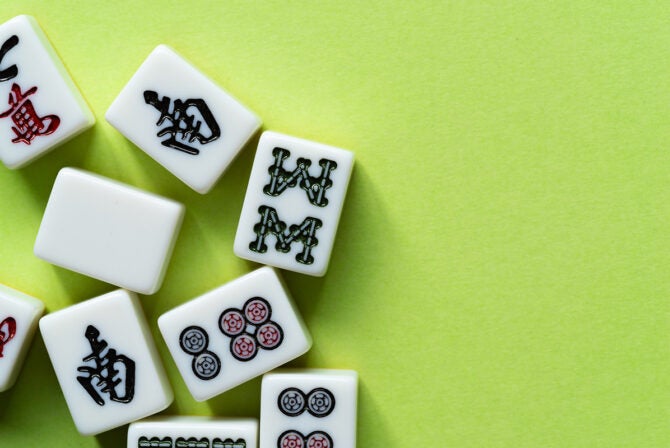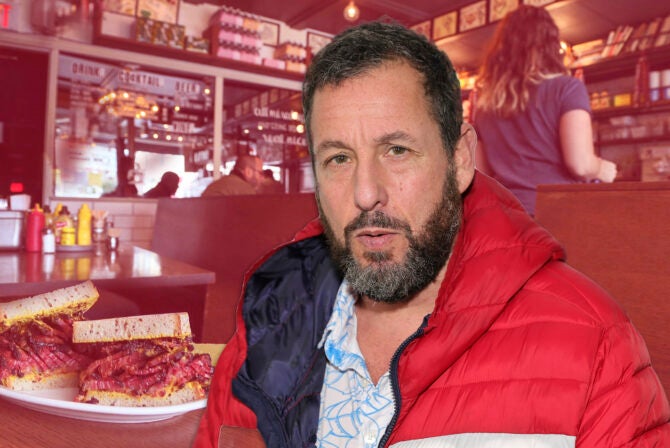It’s frustrating to think about life pitting a mother’s needs against her child’s. As good feminists, we want to take the position that what’s good for the mother is always good for her kid, and vice-versa.
But let’s be honest: That’s not necessarily the case, is it? Sometimes a choice that makes a parent happy is bad for their offspring and vice-versa.
Two vastly different novels that arrived on shelves this spring create their central conflict by examining this choice: positioning mother characters’ desire for love, freedom and self-actualization against their children’s need for, well, mothering.
In Jewish British novelist Francesca Segal’s contemporary drawing-room novel, “The Awkward Age,” Julia, a young widow, finds that her new romantic relationship threatens, and is threatened by, her own daughter’s behavior. Teenage Gwen pushes back against her mother for falling in love, in part, by getting romantically entangled with her (somewhat churlish) would-be stepbrother, Nathan, after the two families uncomfortably merge together in one house.
Julia eventually faces a stark choice between her loyalty to Gwen—angry, confused, lashing-out teen though she may be—and the handsome, steady doctor who has swept her off her feet, and given her a proverbial chance at happiness again.
Julia’s dilemma makes for a tough, if engrossing read. For so many years, Julia’s entire life has revolved around Gwen, not herself. Now her sudden stab at independence and indeed, at love, have created an unexpected backlash. It’s a grim picture of the price of maternal devotion.
Like the writers she admires, Henry James and Edith Wharton (her previous novel, “The Innocents” reworked Wharton’s “The Age of Innocence” among genteel London Jews), Segal adroitly tees up the unpleasantness, putting all her characters in one big house, and a very awkward situation—and then digging them in, making things worse and worse, especially when the relationship between the kids takes an expected, but no less shocking turn.
Segal’s dialogue is witty, her characters are smart and sophisticated and elegantly-drawn—and yet at times the satire is so sharp that it’s hard to find a point of true-North sympathy among these sheltered people and their seemingly insatiable needs.
Gwen’s paternal grandparents, who have lost their son and even their marriage but remain in Julia’s life, provide the most lively and funny plot, yet even there Segal draws out her lessons about the choices between family loyalty and self-interest. She doesn’t provide an answer, only an acknowledgement that the question itself is excruciating, and ever-present.
* * *
Lisa Ko’s “The Leavers” is a very different novel–a sort of energetic Dickensian counterpart to Segal’s careful Jamesian creation. “The Leavers” is devoted to social justice and inspired by a real event. “I was drawn to stories of individual mothers, fathers, and children,” Ko has written,“There was Xiu Ping Jiang, an undocumented immigrant from Fuzhou who’d been stopped by immigration agents while taking a bus from New York City to Florida. When a New York Times reporter found her, Jiang had been held in an immigration detention jail for over a year, often in solitary confinement. What struck me the most was that she had tried to bring her eight-year-old son into the United States from Canada, but he was caught by officials and adopted by a Canadian family.”
“The Leavers” traces the paths taken by a mom, Polly, and her son, Deming before and after being torn apart by the US immigration system’s cruelty. The first half of the book follows Deming, honing in on the aftermath of the fateful day his mother leaves for a grueling nail salon job and never comes back.
He ends up in the home of an embarrassingly naive and well-meaning adoptive white couple who show only perfunctory interest in his past. They care for him and even love him, but the hole in his heart can’t be filled, even as he tries with a mixture of creative and self-destructive behavior (one anecdote that chilled me to the bone: the toy police cars that are meant to be fun, but are actually traumatizing for the son of an immigrant at the mercy of authorities).
The second half of the novel circles back to Polly, going back to before Deming’s birth. Ko exposes the truth of this magnetic woman’s life, including her deep ambivalence about Deming from the beginning—she almost abandons him as an infant—as well as her ensuing fierce devotion to him, and most importantly, to both of their survival.
Ko has acknowledged the many years and drafts it took to create this book. The effort is evident: As a piece of writing, “The Leavers” feels more uneven than the outwardly-unassailable “The Awkward Age.”
But the energy with which Ko draws a picture of family life under immense, almost unthinkable pressure makes hers the more urgent read. Months after reading the last page, I think about this book almost every day in New York City. My soul chafes at the thought that every raid the Trump Administration enables probably tears a child away from his parent, as Deming was torn from Polly. The horrors of ICE and detention centers were a horror I was very much aware of as a good leftist, but Ko has done the job of planting a memorable pair of faces in my heart forever, associating them with this social ill.
And yet, as critics have noted, “The Leavers” is far from an uncomplicated story of pure victimhood. Polly loves Deming, but to take care of him would make her pursuit of happiness, and of a sort of post-traumatic reinvention, impossible. Without him, she is able remarry, build a new life in China, forget the scars of her imprisonment and become someone else, someone she was unable to be as a debt-ridden working mom in NYC. Her abandonment of her son, after she learns where he is, is both cruel and forgivable—you see why she convinced herself it was for the best. And ultimately, as Ko proves, their bond is unbreakable.
As a new mother, it hurts to read about how being a parent can utterly fracture the self—and to see, on the page, how prioritizing yourself as a parent can damage your children.
But it’s also bracing to see fiction tackling this essential truth about creating life; the mother-child relationship is symbiotic, loving, mutually devoted—and also on some deep, difficult level, it’s a competition for resources.







